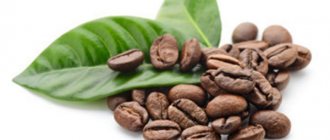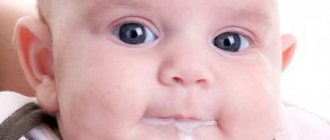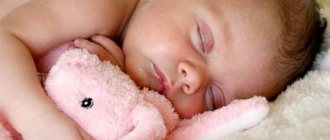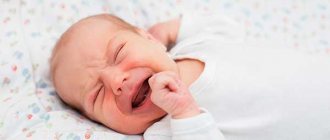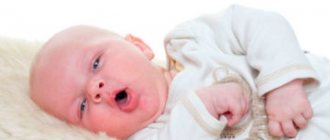After the birth of a child, many women have a question: can they finally pamper themselves with hot and strong coffee, the dream of which arose throughout pregnancy, or should they continue to abstain from this drink until the end of breastfeeding?
Of course, coffee is a rather specific and far from safe drink. It’s no wonder that it causes concern not only among pregnant women, but also among nursing mothers, who are no less connected with their baby and also must follow a certain diet.
However, can coffee really harm the baby in any way or is it absolutely safe when feeding a baby with breast milk? We will consider the answers to these questions further.
Truths and myths about coffee while breastfeeding
The nutrition of a lactating woman should be as gentle as possible. On the one hand, it should contain all the beneficial substances the baby needs for full development. On the other hand, you will have to limit yourself in many products. And this applies not only to food, but also to drinks. Coffee raises many questions.
If a woman did without it before lactation, there is unlikely to be a need for the drink during breastfeeding. But what if, before the birth of the long-awaited baby, a woman consumed the drink regularly and now, having become a mother, she simply cannot refuse it? In such a situation, you should consult a doctor who will answer the question of whether nursing mothers of newborns can drink coffee in each individual case.
Coffee brings not only harm to the human body, but also benefits. It increases blood pressure by 10 points, and also has a beneficial effect on the state of the nervous system, leading to an increase in the level of intellectual development and performance. But it is a scientifically proven fact that regular consumption of coffee creates addiction.
There are many myths about drinking coffee during lactation.
And now we will try to consider and refute common myths about this miraculous oriental drink:
- Coffee is definitely harmful to the health of a nursing woman. It cannot be said that the drink is 100% healthy, but it is also harmful only under certain conditions.
- As an alternative, consider green tea, which is healthier (or less harmful). This opinion is partly false, since green tea is the strongest concentrate of theine, which stimulates the nervous system.
- Drinking a drink without the alkaloid caffeine means no harm. This is also a false statement, since even decaffeinated coffee contains this alkaloid, the only difference is in its volume.
- If you take a cup of the drink a day, nothing bad will happen. This is also a misconception. Although small doses may not cause fatal harm, there is a risk of increasing blood cholesterol levels. And it is harmful not only for the woman, but also for her child.
In addition, caffeine is also found in many other products that should be temporarily avoided. These are chocolate, cocoa, energy sodas and everyone's favorite Coca Cola.
The effect of coffee on the mother's body
So, is it ok to drink coffee while breastfeeding? There are no strict taboos regarding this drink. However, this does not mean that you can swallow the drink in large mugs 3-5 times a day. First of all, you should consult your doctor. And you should think about consuming caffeine only in case of health problems (low blood pressure, weakness, lethargy, apathy). In other cases, in order to avoid harm to the mother and child, you should abstain from the drink.
If you drink coffee without indication and exceed the permissible dosage, the mother may experience the following symptoms:
- headache;
- stomach upset;
- allergy;
- nervous overexcitation;
- increased blood pressure;
- increased heart rate;
- pain in the heart muscle;
- change in skin color.
Of course, consuming caffeine as recommended by a doctor will not cause any harm. At the same time, this substance can have a negative effect on lactation. Each time this element penetrates into mother’s milk, it spoils its quality and leads to the fact that the new mother runs the risk of leaving her baby without another portion of food during subsequent feedings. This is due to the fact that when consuming coffee, metabolic reactions in the body slow down.
Coffee drunk by a nursing woman affects not only her body, but also the baby.
Impact on the baby
A clear signal that the drink should definitely be abandoned is a change in the baby’s health. There are three aspects that this drink can affect:
- Allergy. It may appear in the form of a rash or due to difficulty having bowel movements. If there is no such reaction, drinking coffee is acceptable, but it should be introduced into the diet gradually.
- Excitation of the central nervous system. The child may not fall asleep well enough and may not sleep well. He may also be overly active or moody.
- Reducing the amount of milk. The fact is that caffeine drinks during lactation lead to a reduction in iron concentration, which leads to the development of anemia in the baby.
To avoid such problems, you should abstain from the drink during the first 3 months after the birth of your child.
How long does it take for coffee to be excreted from breast milk?
Coffee is highly absorbable into breast milk. An important role is played by the question of how long it takes for coffee to be excreted from breast milk. This period is long and lasts 3-5 hours.
If caffeine enters a child's body, the rate at which it is released depends on the age of the baby:
- premature babies – 65-103 hours;
- 3-month-old babies – up to 97.5 hours;
- up to six months – 14 hours;
- from six months – 2.5 hours.
Caffeine levels reach their maximum concentration in both women and children an hour after drinking coffee.
Many women believe that pumping can save this situation. In fact, it is ineffective. Until caffeine is removed, some of it will penetrate into the baby's food.
How does coffee affect a nursing mother and baby?
The desire of a nursing mother to drink a little invigorating drink after a sleepless night is quite natural. Sometimes this is the only way to get a boost of energy for caring for your baby and doing household chores. However, it must be remembered that coffee can affect a child in completely unpredictable ways.
the baby may have changes in sleep and appetite - refusal to eat and prolonged wakefulness is possible;- the baby becomes restless, cries and is capricious almost all day;
- you may notice signs of allergies - skin rashes, swelling of the limbs and face, diarrhea or, conversely, constipation;
- Drinking coffee stimulates urination in mother and baby. If you cannot resist this drink, encourage your child to drink it as often as possible;
- Once in the body, coffee removes calcium, so you should not abuse it; in extreme cases, you need to take vitamins enriched with calcium;
- It is very strictly forbidden to drink coffee if your child is being treated with medications containing caffeine. These are usually prescribed for diseases of the respiratory system.
Watch your child carefully; if he is capricious, the process of falling asleep increases, or rashes and itching appear on the skin, give up this drink for a while. However, it does not always have a negative effect on the baby; it depends on individual characteristics.
Coffee does not harm lactation - it does not change the amount of milk at all, and with reasonable consumption of a high-quality drink, it does not affect its quality.
Komarovsky about coffee during lactation
For many mothers, Evgeny Komarovsky is an authority. Therefore, on the question of whether coffee is acceptable during lactation, Komarovsky is an expert who can give intelligible answers to all questions of interest. Like other doctors, he believes that, having become a mother, a woman should protect herself from consuming this drink. This is explained by a number of causal factors:
- caffeine provokes problems with stool and causes allergies;
- the child begins to cry a lot and sleeps poorly;
- The baby is at risk of developing lung diseases.
The removal of caffeine from a child’s body takes an extremely long time, and this process can harm the child’s health. Therefore, when asked whether it is possible to drink coffee during breastfeeding, Komarovsky answers in the negative.
During lactation you need to take coffee in minimal doses
Decaffeinated coffee for nursing mothers - harm or benefit?
In most cases, doctors agree on one opinion - decaffeinated coffee can be consumed by a nursing mother in moderation and in the absence of serious illnesses in the woman or her child.
There are some doctors, mostly with outdated views, who insist on preventing mothers from drinking any type of coffee. But this position is unfounded, since decaffeinated coffee cannot cause significant harm to the body of the mother and child if consumed wisely.
Benefits of decaffeinated coffee during lactation
After removing caffeine from coffee beans, only a small part of it remains in this drink. This content is so low that it is comparable to the caffeine content in some types of chocolate or cocoa.
A cup of tea contains more caffeine than decaffeinated coffee.
There is no need to worry about the negative effects of caffeine on the health of a small child. This is its undeniable advantage, because many mothers want to cheer up after an exhausting sleepless night or simply love to enjoy coffee, but do not allow themselves to have it while breastfeeding due to the high concentration of caffeine in it.
Harm of decaffeinated coffee for an infant
The low amount of caffeine in this coffee does not have a significant negative effect on a woman’s body, but will certainly affect the body of her infant, like other foods she eats.
Due to the fact that caffeine is eliminated from the body only after 5 hours, and the intervals between feedings are much shorter (2-3 hours, and for some more often), some of it is transferred with milk to the baby.
Caffeine is excreted slowly from the body of a child aged 0 to 2 years, over 2 days.
If you drink a lot of coffee, even decaffeinated, there will be an excess of it in the child’s body.
- As the drink accumulates, it causes anxiety and restlessness in the child.
- The baby becomes easily excitable. The child's sleep is disturbed.
- An increase in heart rate may occur.
- Caffeine also interferes with the absorption of certain vitamins and microelements, in particular group B, calcium, potassium, and magnesium.
Not only the caffeine in this drink can harm the child’s body. The processing that this type of coffee undergoes in some cases is chemical, which can also negatively affect health. Its effect on the body has not been fully studied and may be individual in nature.
Rules for drinking coffee during breastfeeding
If coffee is something that is vital to you, you should follow several rules that will minimize the harm from it:
- Consult your doctor to determine the appropriate dosage and dosage schedule.
- Choose only high quality varieties.
- Avoid drinks with artificial additives (such as instant coffee).
- Drink no more than two cups per day.
- The drink should not be strong: it is better to drink two mugs of unleavened coffee at a certain time interval than to consume one cup of very concentrated liquid.
- Coffee meals should be started after the child turns 3 months old.
Choosing decaffeinated coffee for use during lactation
There are now many options for decaffeinated drinks. How to choose decaffeinated coffee? What should you pay attention to when buying this coffee?
The best option for a nursing woman is freshly brewed bean coffee of minimum strength. One of these varieties is highland Arabica, which contains little caffeine. It will be best if you grind the grains right before use.
Already ground coffee can also be consumed, but it is necessary to purchase only well-known brands with a worldwide reputation.
You should not buy decaffeinated instant coffee. It is subjected to maximum chemical processing, which can have an extremely negative impact on the health of both the mother and her child.
How to choose coffee for a nursing mother
Of course, the drink chosen for a nursing mother should be exclusively natural. It is advisable that it be brewed from freshly ground grains. As for the soluble substance, drinking it is prohibited. After all, it is made from low-grade grains, which are also subject to serious chemical treatment. Therefore, dangerous consequences in the form of allergies and stomach upset cannot be avoided.
Decaffeinated coffee
Decaffeinated coffee deserves special attention during breastfeeding. The fact is that this formulation is exaggerated: in fact, this is a drink with a lower content of the substance, so it will not be possible to avoid the penetration of the alkaloid into the body. In terms of harm, the drink is no better than instant coffee.
Coffee with milk
Milk will help neutralize the harmful effects of the black drink. You need to add it to each cup of prepared broth in a ratio of 1 to 3 or maximum 1 to 4.
Natural coffee beans can be replaced with another healthy drink during lactation
Possible negative consequences for the child
Any food consumed by a nursing mother is passed on to the baby along with the milk. Spanish scientists conducted an interesting experiment, the purpose of which was to establish how coffee during breastfeeding affects a newborn.
The research results have shown that an excess of the alkaloid, contained in addition to coffee in chocolate, cocoa, and medicines, often becomes a “provocateur” of nervousness, overexcitation and insomnia in infants. The body is only able to cope with caffeine by the age of two!
In addition to nervous excitement, coffee can cause the following side effects in a newborn baby:
- Dehydration. Caffeine is excellent at removing fluids from the body, but vitamins and calcium disappear along with water. Dehydration is a serious threat to the health and life of an infant, and a deficiency of calcium-containing substances leads to pathologies of the skeletal system and deterioration of the teeth.
- Allergic reactions. Hypersensitivity to the components of the black drink is quite rare, but such a consequence cannot be ruled out. Some newborns react to caffeine with skin rashes or intestinal problems.
- Constipation. Dehydration causes fluid to be removed, including from stool. The result of this effect is difficulty with bowel movements.
- Overdose. The alkaloid is contained in some drugs for the treatment of respiratory diseases. If a woman drinks large quantities of coffee and takes medications at the same time, the baby will receive an excessive dose of caffeine along with the milk.
Dr. Komarovsky, who enjoys great authority among mothers, is convinced that a nursing woman’s passion for coffee leads to a decrease in the level of iron in breast milk. When this happens, there is a risk of anemia in the child.
Replacing coffee while breastfeeding
Coffee is far from the only pleasure. Even without being nursing mothers, many women switch to lighter and gentler drinks. Is it possible to drink them while breastfeeding? Let's look at it together.
Chicory
This is a plant crop. To prepare a soluble powder, its dried root is used. The drink tastes like coffee. But the action is softer. It is useful for the nervous system, figure, intestinal function, and improving immunity.
Barley drink
This product is made from natural grains, so it carries much more benefit than harm. It is actively used in the treatment of diseases and for their prevention.
Acorn coffee
This is an excellent alternative to the classic harmful drink. The preparation is made from heat-treated oak fruits. You can purchase the product in stores, or you can make it yourself.
The drink is useful during lactation, as it makes the mother more energetic and improves her mood, which means the baby will feel good and calm.
Backup options
In any case, for the first three months after the birth of a child, you need to do without your favorite drink. Here, many mothers are trying to find workarounds, in particular:
- take a decaffeinated drink. Actually, this is self-deception. It contains caffeine, although in small quantities. But how much does a baby need of this substance to harm its delicate body?
- women are wondering whether chicory can be used as a coffee substitute. There are no contraindications to this. This product is often presented as a coffee drink. This is true only in relation to its taste characteristics. In terms of its effect on the body, its effect is exactly the opposite: if coffee excites, then chicory calms. It should be noted the positive effect of chicory on the pancreas. Chicory is absolutely safe for breastfeeding, but can it replace coffee? You need to try it, because this is definitely an approved product.
If a new substitute product appears in the store, you need to carefully look at its composition. In addition to coffee, many drinks may contain flavor enhancers or flavorings, and they are certainly incompatible with breastfeeding.
Giving up coffee while breastfeeding is welcome. You can try to replace it with other products:
- if the child does not have allergic reactions, try various herbal infusions;
- Herbal teas of various compositions will be useful;
- It is useful to brew dill water, which has a laxative effect; it can be replaced with anise or caraway seeds.
But in any case, you need to carefully monitor the child’s condition.
Of the listed options, the most permissible option is chicory, which has a taste similar to coffee. Over time, you can add natural coffee little by little, gradually increasing the dose. Chicory itself is very useful and will help mom brighten up restrictions.
It should be noted that restrictions in taste preferences in itself are stressful, which mom should avoid.



